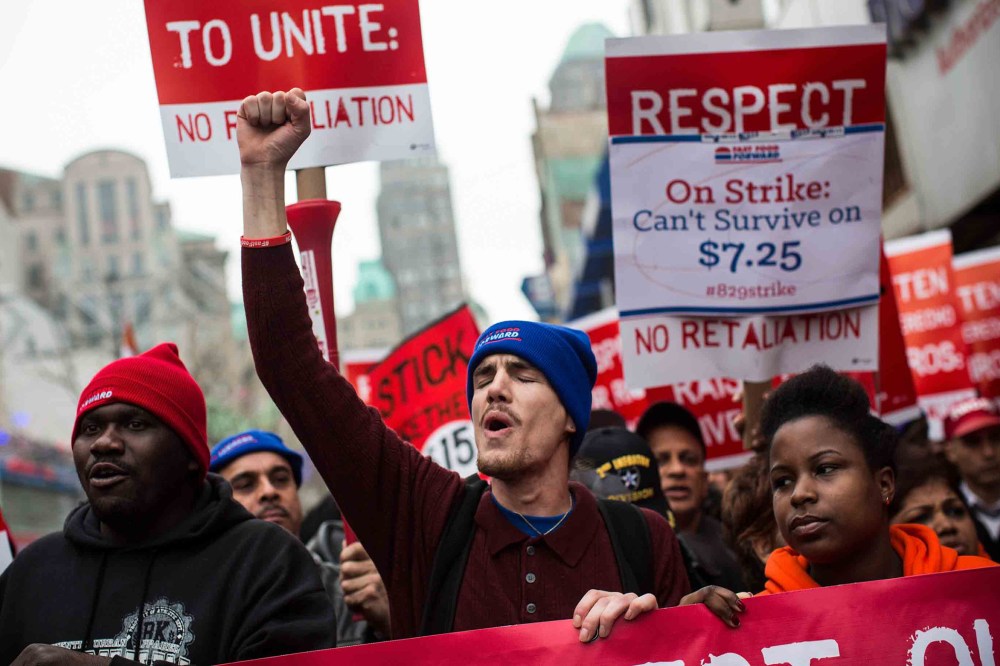Raising the federal minimum wage would boost the income of millions of low-wage workers but at the cost of a half-million jobs, according to a new report from the non-partisan Congressional Budget Office.
Lifting it from the current level of $7.25 to $10.10 would lift 900,000 Americans out of poverty and raise the income of 16.5 million Americans who currently make less than $10.10, the CBO report concludes. But, the report adds it would also mean 500,000 fewer jobs as employers cut back to compensate for higher labor costs.
The CBO examined at the impact of raising the minimum wage gradually until it reaches $10.10 in 2016, as President Obama and many congressional Democrats are proposing. The report concluded that earnings for low-wage workers would increase by $31 billion, pulling close to 1 million American workers above the poverty line. The greatest number of beneficiaries would be adults without a high school education. Of those projected to earn $11.50 or less by 2016, the CBO estimates that 88% will be at least 20 years old, 56% will be female, and 91% won’t have a bachelor’s degree.
The higher minimum wage would have some positive effect on employment, as lower-wage workers are likely to spend more of their income on goods and services. But the CBO found that on the whole, the net impact on employment would be negative: employers would likely cut back on hiring or pass on the higher labor costs to consumers, thus lowering demand and jobs.

At certain firms, the higher minimum wage would also boost the salaries of those already earning more as companies adjusted their payscales. That would increase the income of higher-wage workers, but also deter employment due to the higher labor costs.
There are other losers as well: On average, the higher minimum wage would increase the average income of families earning less than $10,700 by 2.8% a year, or $300, and decrease the average income of families earning more than $182,200 by 0.4%, or $700. But that’s part of the point, supporters argue. “Yes, it does come at expense of upper-income individuals. But in general given how well those at the top have done in the last 30 years, it is only rectifying the growth of inequality,” said Columbia University economist Joseph Stiglitz on a Tuesday conference call of economists who support a $10.10 minimum wage.












